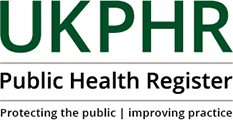Master or Apprentice: Rethinking entry points and training in Public Health
By Professor Darren Shickle, Professor of Public Health at University of Leeds
 Darren Shickle is Professor in Public Health and Head of the Academic Unit of Public Health in the Leeds Institute of Health Sciences. He is also an Honorary Consultant within Public Health England. Current projects include involvement in trailblazer application for public health apprenticeships.
Darren Shickle is Professor in Public Health and Head of the Academic Unit of Public Health in the Leeds Institute of Health Sciences. He is also an Honorary Consultant within Public Health England. Current projects include involvement in trailblazer application for public health apprenticeships.
The University of Leeds is considering establishing a new BSc in Public Health course. As part of this, academics must provide a business case to the University to demonstrate that there is a demand for the course, and usually conduct market research.
Course demand is influenced by push and pull factors. Push factors will include how many potential students will be interested in applying for the course and pull factors will include whether employers will want to give students a job after they graduate.
One of the problems in terms of the push factors is that most young people have a poor understanding of public health, even though public health stories, of one form or another, are in the news every day. Thus, the number of young people (and more mature potential students) who will be aware that there are careers in public health will be even smaller, and few will realise that there are degrees in public health or will know the other career entry points. To address this problem, my colleagues and I are currently exploring funding for a national schools photography competition with a theme of “This is Public Health”. This will be followed up with a mobile national exhibition of winning entries. If it comes off, in addition to raising awareness of public health, we are planning to analyse the content of all of the competition entries, as it should provide a fascinating insight into what young people view as public health issues (either positive or negative).
In order to look at pull factors, I conducted 14 qualitative interviews in 12 local authorities and Public health England in Yorkshire and the Humber team. Between 1 and 10 Directors of Public Health and public health consultants/specialists (mean 4) contributed to each interview. The results of the research have been published and are available at: Shickle D, Stroud L, Day M, Smith K. Master or Apprentice: rethinking entry points and training in Public Health. Journal of Public Health 2017, https://doi.org/10.1093/pubmed/fdx081
Although the main aim of the interviews was to consult with colleagues about the proposed BSc in Public Health, the research provided an insight into the problems relating to entry points, career paths and professional development in the public health workforce since responsibility for public health in England shifted to local government and PHE in 2013.
While working within local authorities provides opportunities to influence social determinants of health, interviewees were concerned about reductions in the Public Health workforce and ‘watering down’ of skills. There were concerns that financial constraints would lead to reductions in Public Health skills with fewer staff to provide critical analysis. Formal qualifications were increasingly less valued. Instead staff were expected to have a broader skill set with an emphasis on experience.
Budget cuts and different organizational cultures may see a reduction in senior public health specialists. However, professionalization of the practitioner workforce may strengthen and diversify knowledge and skills, and finally recognize the important contribution of this cohort of staff.
There was a clear message that junior staff were expected to step up to deliver Public Health functions at the same time as training budgets were reduced. Interviewees recognized the absence of a career ladder for junior members of the core Public Health workforce and inequalities in training resource available to those on the Public Health consultant training scheme relative to the rest of the specialist Public Health workforce. However, ‘grow your own’ policies may mean that staff struggle to transfer local authority specific knowledge and skills to other Public Health settings.
There are multiple routes for becoming and developing as a practitioner, with inconsistency in registration with various professional bodies, if any. However, new entry points are needed for graduates or via apprentice schemes. Apprenticeship schemes seemed attractive to interviewees to help maintain or enhance the professional status of Public Health within local government by providing a career structure for junior staff. An Expression of Interest has been submitted to the Institute of Apprenticeships to establish a public health practitioner apprenticeship programme. This would be a level 6 degree apprenticeship.



Comments are closed.